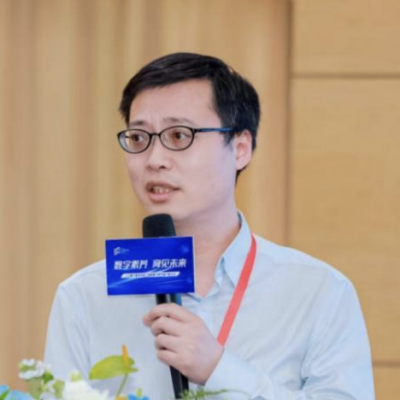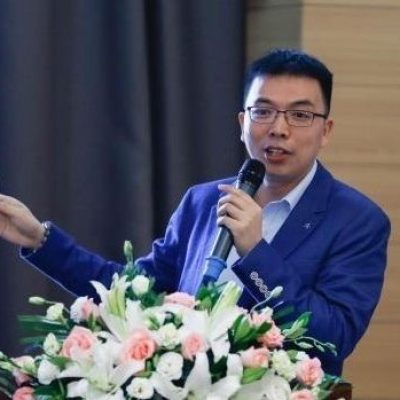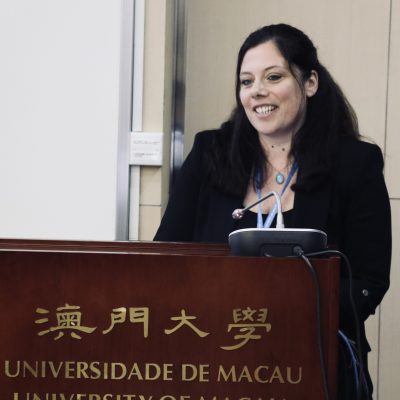PARALLEL SESSION ROOM3
| 10:45-12:15 | AI, Education, and Marginalisation (Jump to the session) |
| 13:30-15:00 | The potential of AI in educational practice and AI-based learning environments (Jump to the session) |
| 15:10-16:40 | AI in Judicial and Legal Contexts (Jump to the session) |
AI and Education intersect in many ways, revolutionizing learning experiences and empowering students with personalized, data-driven insights. This session explores different dimensions of artificial intelligence (AI) and its impact on education. For example, AI translation tools in education, questioning their potential impact on educational disparities and learning outcomes, socio-political concerns related to algorithms, including data profiling, privacy issues, and algorithmic neo-colonialism, particularly in African countries. Furthermore, the session analyses AI’s role in addressing societal inequalities for disabled individuals emphasizing trends, applications, and challenges for this group. Collectively, the session highlights AI’s multifaceted influence on education, governance, and social equity, emphasizing the need for an inclusive approach to ensure equitable outcomes.

Ronald Musizvingoza (Chair)
Researcher, UNU Macau

Angelina Maria
Lecturer in translation studies at the Faculty of Humanities and Social Sciences, City University of Macau

Salvatore Mancuso
Professor of Comparative Law and Legal Anthropology, University of Palermo

Xiaohong Zhu
Graduate student, Hangzhou Normal University

Linda MENDO ABESSOLO
Data Privacy & AI Compliance, Activist for Digital Inclusion, and Founder of “Cameroon Women First Association”

KAIZE ZHU
Incoming PhD student at the City University of Hong Kong

Liangyue Zhang
Ph.D. student in Journalism and Communication Studies at Fudan University
This session focuses on research that explores how to fully harness the potential of artificial intelligence in educational theory and practice, including the application of advanced artificial intelligence technology, AI-based learning analysis, and AI literacy building and so on. This current session aims to cultivate a better understanding of the relationship between AI and education and to develop the AI capacity of both teachers and students, ultimately enhancing the teaching and learning process. The development of AI, particularly generative AI models like ChatGPT, has had an irreversible impact on education, resulting in significant transformations in traditional teaching processes and instructional behavior analysis. It has the potential to intersect with various disciplines, including Computer Science, Learning Analysis, Psychology, Cognitive and Learning Research and so forth. By leveraging innovative AI technologies, we hope to provide practical pathways to enhance learning outcomes and perceptions across different teaching and learning scenarios. It also seeks to empower educators with the necessary AI literacy to effectively leverage AI technologies in their classrooms by drawing on international experiences and best practices. Paper Submission Topics within this session(including but not limited to the following): 1.Theory and practice of AIED model 2.Application of the Generative AI in teaching and learning 3.Learning analysis based on AIGC 4.AI-based expression recognition 5.AI-based pedagogical design 6.The integration of AI and the Metaverse 7.AI literacy

Zhai Xuesong (Chair)
Senior Researcher, College of Education, Zhejiang University, China

Dai Yi
Assistant Professor of the School of Education, City University of Macau

Wu Tinghui
Master student majoring in Educational Technology at the College of Education, Zhejiang University.

Zhang Lijie
Master’s candidate in Educational Technology at Zhejiang University

Ji Shuang
Undergraduate student, Nanjing Normal University

Xiao-guang Yue
Co-Founder and Foundation Fellow of International Engineering and Technology Institute (FFIETI)
Artificial Intelligence (AI), serves as a powerful tool in reshaping legal proceedings and combating corruption by enhancing transparency, automating processes, and enabling data-driven investigations. The session highlights AI’s positive impact on the judiciary, legal, and governance sectors. First, the PMJAY health insurance scheme in India offers a successful case study in AI tools to provide health coverage and fight corruption. Another talk will propose an AI model to improve efficiency in judicial systems. Another case study focused on an automated legal document suggestion system used in Brazil’s courts. Lastly, the risks AI poses for Asian businesses in general is discussed. Overall, these presentations highlight how AI can enhance efficiency, transparency, and accountability in judiciary, healthcare, legal, and business contexts.

Walter Gehr (Chair)
Genral Directorate for Cultural Affairs, Austrian Federal Ministry for European and International Affairs, Austria

Fernando Buarque
Senior Associate Professor of Computing(AI), School of Engineering, University of Pernambuco, Brazil

Teng Hin Ip
Economics Panel Chairperson, Sacred Heart Canossian College (English Section) Macau

Vincent Mossfield
Regional Director, Liability Risk Practice, WTW Asia

Sara Migliorini
Assistant Professor of Global Legal Studies at the Faculty of Law of the University of Macau
Eliamani Laltaika
Judge of the High Court of Tanzania and an adjunct faculty member of The Nelson Mandela African Institute of Science and Technology (NM-AIST), Arusha Tanzania
Mlinga Idrisa Mrisho
Ph.D. in International Investment Law, Beijing Institute of Technology
